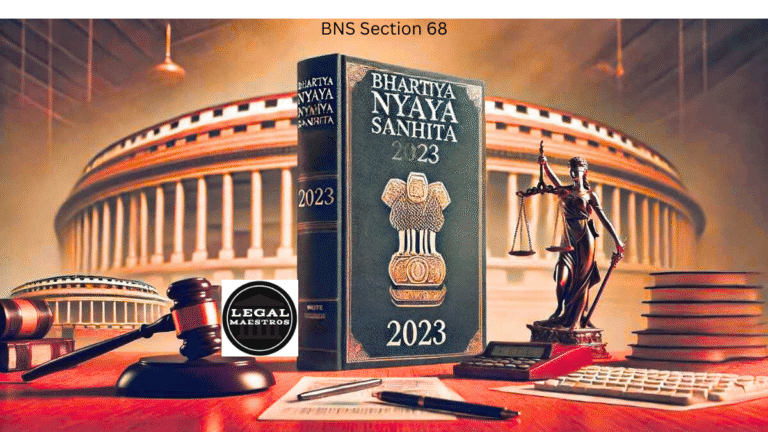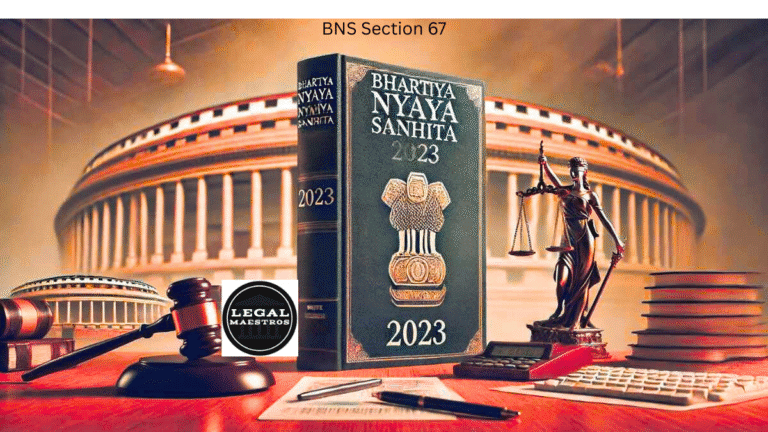
Section 41 of the Bharatiya Nyaya Sanhita, 2023: When the Right of Private Defence of Property Extends to Causing Death
The Bharatiya Nyaya Sanhita (BNS), 2023, which took the place of the Indian Penal Code, is the comprehensive legal document that sets the basis for criminal law in India. It is clearly addressed in Section 41 of the BNS that scenarios in which an individual’s right to private defense of property extends to inflicting death are included aforementioned. By ensuring that individuals are able to safeguard their property against severe dangers while yet respecting legal bounds, this clause assures that individuals can do so.
The boundaries of Section 41
Under some and extremely serious conditions, Section 41 gives an individual the authority to cause death in the name of protecting their property. Among these possible scenarios are:
- 1. Robbery is defined as the act of someone attempting to seize property by using both force and fear.
- 2. “House-breaking after Sunset and Before Sunrise” refers to the act of entering a residence without permission during the dark hours of the night.
- 3. “Mischief by Fire or Explosive Substance” refers to the act of setting fire to structures that are used for living or property storage, or using explosives to cause damage to those structures.
Under circumstances that properly create anxiety that death or grave harm may be the consequence if the right to private defense is not exercised, the following are examples of crimes that fall under the category of “theft, mischief, or house-trespass” under the law.
For any queries or to publish an article or post or advertisement on our platform, do call at +91 6377460764 or email us at contact@legalmaestros.com.
The right to cause death in the defense of property is subject to the constraints that are defined in Section 37 of the BNS. These restrictions ensure that the force that is employed is proportionate and necessary. It is vital to remember that this right is subject to these restrictions.
For More Updates & Regular Notes Join Our Whats App Group (https://chat.whatsapp.com/DkucckgAEJbCtXwXr2yIt0) and Telegram Group ( https://t.me/legalmaestroeducators )
Examples to Illustrate the Point
In the first scenario, a homeowner wakes up in the middle of the night to discover that an intruder is attempting to break into their home. A confrontation takes place between the homeowner and the invader, who threatens them with a weapon. As a result of the subsequent battle, the homeowner resorts to force, which ultimately leads to the death of the invader. According to Section 41, this act is permissible because it is a defense of both one’s property and one’s own person.
For any queries or to publish an article or post or advertisement on our platform, do call at +91 6377460764 or email us at contact@legalmaestros.com.
The second example involves a person who makes an attempt to start a fire at a warehouse that is utilized for the storage of precious commodities. Due to the fact that the security guard was present throughout the act, he decided to interfere and ultimately resulted in the death of the arsonist. In light of the fact that the guard’s actions were motivated by the intention to cause damage to property through the use of fire, Section 41 is applicable.
The case of the Beed Windmill is a precedent in the law.
It is important to note that the Beed windmill event is a crucial example that highlights the use of private defense laws. After shooting and killing one of many armed robbers that assaulted a windmill facility in Mahajanwadi, Beed district, in May 2025, Roopsingh Tak, a security guard and former serviceman, was arrested for culpable homicide not amounting to murder. This occurred after he had shot and killed one of the terrorists. After they started throwing stones at him, Tak fired once in the air and once at the people who were attacking him. As a result of the occurrence, questions were raised regarding the appropriateness of the use of force in self-defense. The authorities highlighted that proportionality is the most important factor, despite the fact that licensed firearm use in self-defense is permitted. Ganesh Gadhe, an advocate for the high court, made the observation that the allegation of culpable homicide would be upheld if Tak exceeded the limits of private defense without intending to kill. If this was not the case, however, he might face exoneration.
Individuals have the legal right to safeguard their property from grave dangers, even to the extent of inflicting death, under certain situations, as stipulated by Section 41 of the Bharatiya Nyaya Sanhita, 2023. This provision was included in the law. Nevertheless, this privilege is constrained by the necessity and proportionality of the response, which ensures that the force that is employed in defense is commensurate to the threat that is taken into consideration.
For any queries or to publish an article or post or advertisement on our platform, do call at +91 6377460764 or email us at contact@legalmaestros.com.







![Research Assistantship @ Sahibnoor Singh Sindhu, [Remote; Stipend of Rs. 7.5k; Dec 2025 & Jan 2026]: Apply by Nov 14, 2025!](https://legalmaestros.com/wp-content/uploads/2025/11/Gemini_Generated_Image_s0k4u6s0k4u6s0k4-768x707.png)
![Karanjawala & Co Hiring Freshers for Legal Counsel [Immediate Joining; Full Time Position in Delhi]: Apply Now!](https://legalmaestros.com/wp-content/uploads/2025/11/Gemini_Generated_Image_52f8mg52f8mg52f8-768x711.png)